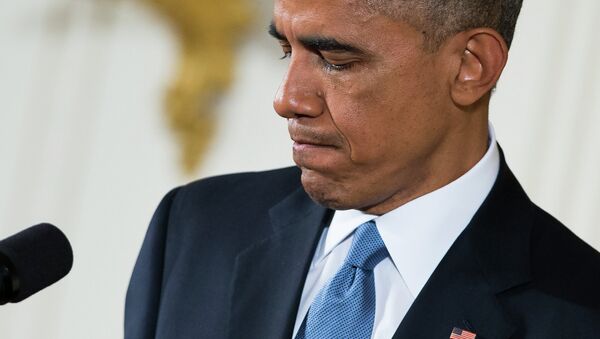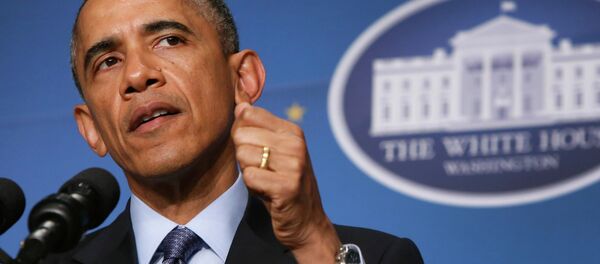"The Military Times poll is not a probability sample of the entire military, but it is a good poll for tracking changes over time in an important segment of the military: the career oriented rank and file, both officer and enlisted," Peter Feaver, a professor of political science and public policy at Duke University said.
The annual Military Times survey released Monday found Obama's disapproval rating has risen from 40 percent in 2009 to 55 percent in 2014. Obama's approval rating has declined from 35 percent to a 15 percent during the same period.
Feaver, who was previously at the National Security Council at the White House, pointed out the military tends to draw disproportionately from conservatives that are far from Obama's Democratic support base. "Even so, the Military Times poll shows that support for President Obama among this segment has dropped over time," he said.
Noting that the memoirs of former US Secretary of Defense Robert Gates and Leon Panetta revealed divisions between the Pentagon and White House, Feaver said there has been high level of friction between civil-military leaders. "The polls may be picking up on that," Feaver suggested.
While Feaver said budget cuts in the military during Obama's tenure could also be a factor of declining support, Matthew Leatherman, a Budgeting for Foreign Affairs and Defense Advisor at the Stimson Center, told Sputnik it might not be so.
Leatherman said research and polls conducted by the Stimson Center in 2012 revealed that Americans who live in communities with high levels of defense spending favored cutting the budget.
"Many people may assume that these numbers reflect service-members' dissatisfaction with cuts to the defense budget," Leatherman said. "Attitudes about the budget may have changed, but it also appears important to look at explanations beyond the budget for why service-members expressed these opinions about the Obama administration."
The poll found military morale to have dropped significantly in the past five years. In 2009, 91 percent of respondents said their quality of life was good or excellent compared to 56 percent in 2014. Meanwhile, 70 percent said they believed their quality of life would decline in coming years. In 2009, 87 percent of respondents rated their pay and allowances as good or excellent, compared to only 44 percent in 2014.



